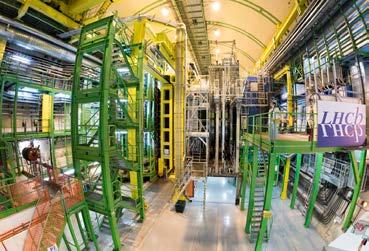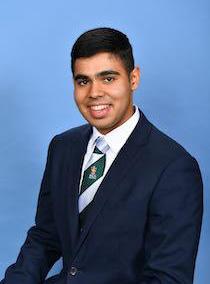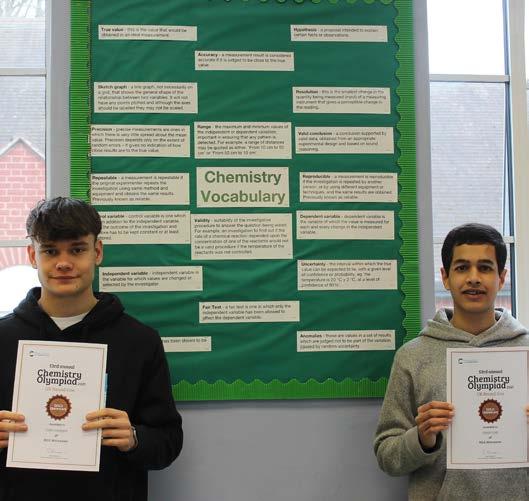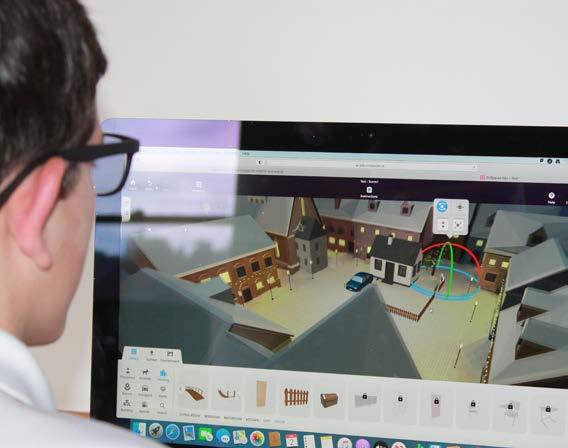
9 minute read
English Faculty
SCIENCE FACULTY
It is virtually impossible to discuss anything Science related without mentioning the tragedies that the Covid-19 pandemic has inflicted globally. The Covid-19 pandemic highlighted, and continues to highlight, the need for greater connectivity of ideas between multi-disciplinary teams in order to create workable solutions. The author Mathew Syed, in his latest book Rebel Ideas, highlighted the importance of this: for a team to be successful, it is not about talent, knowledge or skill but about cognitive diversity. Differences in race, gender, age, class and religion, amongst others, increase group wisdom. Any teacher holding a classroom debate will wholeheartedly align with this statement, and we could all do with a bit more wisdom in these challenging times.
Advertisement
BioLogy
In a competition designed for Upper Sixth students, our Lower Sixth pupils performed at a very high standard as much of the material examined had not yet been covered. Eight pupils received the Commended Award and six pupils received the Highly Commended Award. In addition, Freddie Davies achieved a Silver Award, the best RGS performance in recent times, well done. We wish Freddie all the best for his Cambridge application next year.
Outside the classroom, the Biology Department has afforded its students opportunities which has sparked interest and curiosity in the natural world. Head of Biology, Mr Henderson, dissected a rat for the Billingham Society, explaining along the way key features of the anatomy as the dissection progressed. The lecture was filmed, edited and produced by Mrs Bishop and subsequently shared with pupils so all had the opportunity to learn about rat anatomy during lockdown.
Ms Briggs organised an Environmental Awareness Outreach Activity with Grimley and Holt Primary School where Year Ten students designed and produced Environmental Projects detailing the impacts humans are having on the environment, and what actions we can take to limit these. The projects were then shared electronically with Grimley and Holt Primary School, and used to educate the Year Six pupils on the issues of Global Warming. The Grimley and Holt pupils then judged the projects and awarded a prize to the most popular.
Miss Briggs said: “We had such a super morning. The pupils were motivated, keen to learn and interact with all aspects of the lesson. We used Nearpod with their school iPads and set up a practical experiment to show the effects of land ice versus sea ice, melting on sea levels. Thank you to the staff and pupils of Grimley and Holt Primary for hosting us this week.”

Physics
This year has produced some outstanding achievements from pupils, most notably the fantastic successes across Senior, Intermediate and Junior Olympiad competitions.
In the Senior Olympiad, a competition designed for Upper Sixth students, a strong set of results was achieved by our Lower Sixth students, with Bronze Medals awarded to Angus Day, Will Fallows and Josh Oldnall, Silver Medals for Aaron Lad, Jensen Lee, Will Paterson, Nicolas Kaye and Ben Gaubert with Katy Marsh and Adrian Fok both gaining prestigious Gold Medals. These excellent performances bode well for next year.
This success was mirrored in the Intermediate Olympiad by our Year Eleven pupils: Oliver Blunt, Tobey Butler, James Robinson and Dave Varughese achieving Silver Medals. The Junior Olympiad produced a huge haul of medals for our pupils; 102 in total. Year Ten and Year Nine pupils achieved 71 Bronze, 22 Silver and most pleasingly nine Gold Medals: Jacob Bunyan, Matthew Dale, Noah Davison, Summer Hipkins, Luke Jones, Oskar Matysiak and Dylan Cowling from Year Ten and Abigail Crabbe and Elizabeth Crookall from Year Nine. My thanks go to all the pupils who took part and my congratulations to those who were rewarded with medals.
Outside curriculum lessons, our Lower Sixth Physics pupils took part in a Masterclass on Particle Physics. The event, hosted by the University of Birmingham’s Department of Physics and Astronomy together with Universities from Brazil, Italy, the USA and most importantly CERN, was an excellent opportunity for our pupils to interact and question scientists who are working at the cutting edge of Particle Physics. During the day, pupils were able to explore virtually the Large Hadron Collider and ask questions about its operation.
Pupils were also tasked with making measurements and experienced life as a researcher in particle physics for the day. They had access to real, unused data collected from the Large Hadron Collider which they were able to process to aid scientists looking at the Charm quark and its decay. The processed data is now included as part of the project. The day finished with a Particle Physics quiz in which Nicolas Kaye came second out of 150 Physics students taking part from around the world; a stand-out performance. Well done to all, especially Nicolas.



chemistry
Despite the restrictions the Covid-19 pandemic presented to the teaching profession and beyond, the Chemistry Department has continued to try to inspire and prepare students in their quest for further knowledge and understanding of our world around us. We have welcomed three new Chemistry teachers this year, Mr Downes, Dr Stephen and Mr Joyner. These new members of staff bring a wonderful mix of experience, enthusiasm and dedication to our Department.
One of the biggest successes this year has been Liam Leonard gaining a place at Corpus Christi College, Oxford, to read Chemistry. .
AN INTERVIEW WITH UPPER SIXTH CHEMISTRY STUDENT LIAM LEONARD 01 Why did you want to apply to Oxford? “Oxford’s strong focus on research along with the opportunity to be taught by some of the world’s leading Chemists really inspired me to apply to read Chemistry at Oxford.”
04
How did you prepare for the interview process? “Reading around the subject and participating in Massive Open Online Courses provided me with a greater understanding of how the Chemistry we learn applies to our everyday lives whilst Mock interviews at school strengthened my problem-solving skills in preparation for the interview."
02
What has been your experience of Chemistry at RGS?
“Studying Chemistry at RGS has been very rewarding, especially the practical aspect of the course which has equipped me with many useful skills in preparation for university-level Chemistry. “
05
What was the interview process like?
“Despite being online, the interview process was a great experience which broadened my understanding of Chemistry and provided me with a goal to work towards. I thoroughly enjoyed having the opportunity to talk about the subject with experts in the field.”

03
Why do you want to study chemistry at university? “From drug development to sustainable energy, Chemistry’s central role in everyday life inspired me to pursue the subject to a higher level. Also, I like how a large proportion of the course is spent in the laboratory as I thoroughly enjoy the practical side of Chemistry.”

06
What are your future academic or career plans? “After university, I would love to take part in research as there is such a diverse range of research laboratories at Oxford. Research topics such as sustainable Chemistry and drug development interest me as they are becoming increasingly important in our lives.”
Liam was also one of 20 A Level students who took part in the highly challenging International Chemistry Olympiad. This online event involved students from all over the globe tackling topic based problems, the majority of which were more on a par with first year Undergraduate level studies. Questions ranged from the Chemistry of Venus to the ‘social distancing’ of three dimensional molecules. Credit must go to all the students, many of whom were Lower Sixth. The pupils enjoyed a fabulous set of results with Rojat Seven, William Patterson, Joshua Leung, James Larkin and Fliss Johns achieving Bronze Awards, Sam Thompson, Katy Marsh and Adrian Fok achieving Silver Awards. Particular mention must go to Aaron Lad (Lower Sixth) and Liam Leonard (Upper Sixth) who, by achieving Gold Awards, were placed in the top 9% of 9000 students who participated worldwide this year.

COMPUTING AND IT
In an academic year where we have relied on the success of our Digital Learning Programme, the Computing and IT Department has been at the forefront of delivering the School’s hybrid model of teaching and learning. In these unprecedented times it is impossible to overlook the importance of the subject to keep the world connected and functioning. To this end, pupils have had the opportunity to gain a nationally-recognised qualification at RGSW with the Lower School working on the iDEA (Inspiring Digital Enterprise Award) programme. This has involved exploring and completing badges relating to the use of technology to understand the role we all play as responsible digital citizens, as well as how computers play a key role in modern business.
Year Seven pupils discovered that computers are embedded into a range of everyday objects, with the increased availability of smart devices connected to the Internet. They have also had a lot of fun programming hardware using the BBC micro:bit device. In Year Eight, pupils learned about key computer laws and how to code a range of applications for real-life tasks, moving from block-based to industry-standard text-based languages.
In Year Nine, pupils have created algorithms and applied computational thinking to code programs, as well as developing their technical understanding of computer networks and cyber security. Year Ten GCSE Computer Scientists have studied data representation, covering the binary number system and how image and sound compression allows for digital storage. Year Eleven pupils have applied theory to the extended programming project, a requirement of the course, as well as studying the ethical and environmental impacts of computers in society. At A Level, Lower Sixth stuents have learned about implementing program design and have also completed supplementary CISCO Networking courses, leading to an industry recognised cybersecurity qualification. Despite disruptions to their A Level Computer Science studies, Upper Sixth students have completed real-world system investigations, all achieving in the top mark band for their impressive NEA projects. They have also performed admirably in the annual British Informatics Olympiad coding competition.
The Department continues to offer Lower School Code Club which this year has been held virtually, with pupils taking part in half-termly challenges leading to a showcase event. Working with a variety of resources, including augmented reality, club members have once more demonstrated the creativity and technical skills of our Year Seven and Eight pupils.
We have also provided a range of activities throughout the academic year, including the Government’s Cyber Discovery and CyberFirst Girls competitions to promote careers in cybersecurity and the UK Bebras Computational Thinking Challenge. During Code Week in December, pupils took part in class programming activities, culminating in the Cipher Challenge House competition for Year Seven and Eight. RGSW was once more recognised as an official supporter of the annual international Safer Internet Day event in February, with the Department delivering the message of our shared responsibility to be safe and positive online during lessons.








